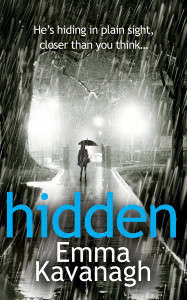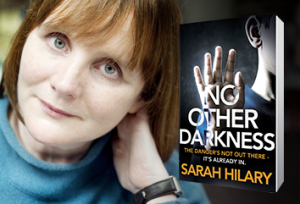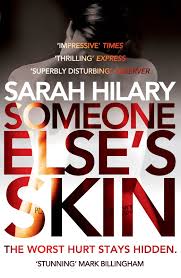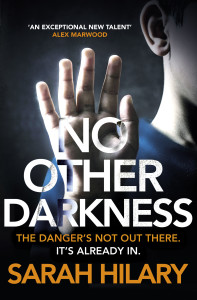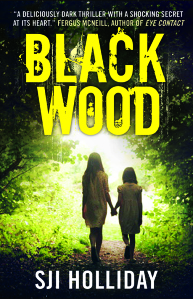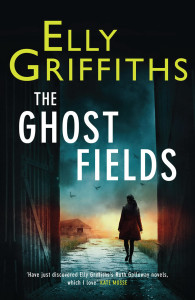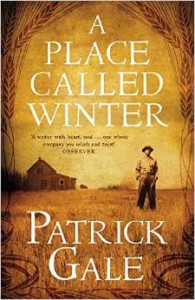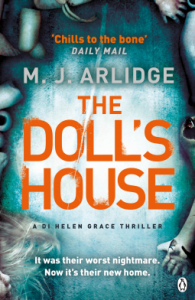In my recent conversations with David McCaffrey and Karen Long I posed a question asking why they felt readers loved a story about a Serial Killer. I had planned to ask the same question of Alexandra Sokoloff but she suggested that she would have LOTS to say on that topic.
 This was too good an opportunity to pass up! I asked Alex if she would be interested in answering a few questions just on the subject of Serial Killers and I am delighted to share our resulting conversation.
This was too good an opportunity to pass up! I asked Alex if she would be interested in answering a few questions just on the subject of Serial Killers and I am delighted to share our resulting conversation.
I shall start with my established opening gambit: why do we love a serial killer story?
I think the serial killer has become an iconic monster, like a vampire or werewolf or zombie (maybe replacing the pretty much defunct mummy!). This icon is of course a very idealized version of what a serial killer actually is. And I think it was Thomas Harris who mythologized the serial killer to classic monster status, although Stevenson’s Jekyll/Hyde, Stoker’s Dracula (supposedly based on the real-life Vlad the Impaler), and various depictions of Jack the Ripper were strong precursors. We are fascinated by the idea of pure evil in a human being.
However, the other component of why we love a serial killer story is because most authors (and screenwriters and filmmakers) who write about serial killers are dishonestly romanticizing them and leaving out the unmitigated, repellent malevolence of these men. About which more in a minute.
And there is also an unfortunate percentage of the population that gets off on reading about rape, torture, and murder.
Was Jack the Ripper the first recorded serial killer or has he just become the most famous?
There were certainly recorded serial killers before Jack the Ripper. The Harpe brothers in the US in the 1700’s, Gilles Garnier in France in the 1500’s, Thug Behram in India in the late 1700’s, just to name a few. Military campaigns have always provided an outlet for serial killers, as have the institutions of slavery and the Inquisition.
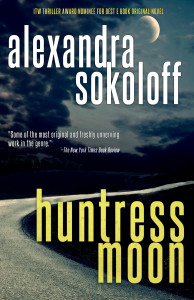 When I hear the term Serial Killer I automatically assume that it is an American phenomenon – I put this entirely down to Hollywood. However, am I right and does America really have the lion’s share of the known Serial Killers?
When I hear the term Serial Killer I automatically assume that it is an American phenomenon – I put this entirely down to Hollywood. However, am I right and does America really have the lion’s share of the known Serial Killers?
Well, of course America is going to have a greater proportion of serial killers simply because the US has a larger population than most countries. The way I understand it, the seeming rise in the number of serial killers in the late twentieth century was due to the increasing number of people who owned automobiles and the increasingly transient nature of the American population. People started moving long distances to find work, for example, and started changing jobs frequently, and so it was easier to kill and move on, making it easier to avoid detection. A serial killer is by definition a successful one, at least for a while.
Is it likely that there are serial killers operating undetected right now? If so would you care to hazard a guess at the numbers that may be involved?
According to the FBI, absolutely. The Bureau estimates, some say conservatively, that between 35 and 50 serial killers are operating in the US in any given year. I figure they know what they’re talking about.
Taking the last question a step further, do you believe a ‘successful’ killer could cover their tracks multiple times for a long period of time?
Yes, there have been killers who have managed that. The Green River Killer, for example, who for years was able to hide an increasing number of bodies in the vast forested areas of the Pacific Northwest.
Keeping this question on a fictional level, do you have favourite serial killers from books or film where you liked the angle that the writer(s) adopted?
There’s really only one author for me in that department – Thomas Harris with Red Dragon and The Silence of the Lambs. Harris did a completely brilliant thing, there. In the 1970’s Special Agents Robert Ressler and John Douglas of the FBI’s Behavioral Science Unit (now called the Behavioral Analysis Unit) began a series of interviews with incarcerated serial killers to see what made these men tick and hopefully develop strategies for catching them. The agents, along with Professor Ann W. Burgess, compiled their findings into a textbook and started to train agents as profilers. This new department got a lot of press and media attention and a large number of authors jumped all over that research. But judging by the books that resulted, very, very few of those authors seem to have actually read those interviews.
Thomas Harris, though, took the same research that was available to everyone, and used a combination of absolutely precise fact and police procedure and a haunting mythological symbolism to create those first two books, Red Dragon and The Silence of the Lambs (and then Hannibal sort of went off the rails, if you ask me…). The result was two of the best horror/police procedural blend novels ever written. The killers Jame Gumb (Buffalo Bill) and Francis Dolarhyde were both more and less than human. And Lecter, of course, is a mythic archetype of the evil genius.
And then everyone jumped on the bandwagon and there are now hundreds of Lecters-lite, if you will.
I love those two books of Harris’s for their mythic resonance. But I have a real 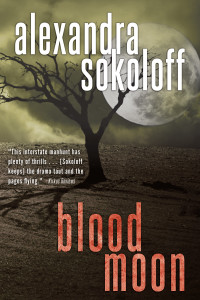 problem with the way most authors portray serial killers because it’s so incredibly dishonest. They romanticize and poeticize serial killers – portraying them as evil geniuses that play elaborate cat and mouse games with detectives and law enforcement agencies. Yeah, right. These men are not geniuses. They don’t leave poems at crime scenes or arrange their victim’s bodies in tableaux corresponding to scenes of great art or literature. They are vicious rapists who brutalize their victims because the agony of those victims gets the killer off, and a large number of them continue to have sex with the corpses of their victims because they are that addicted to absolute control and possession.
problem with the way most authors portray serial killers because it’s so incredibly dishonest. They romanticize and poeticize serial killers – portraying them as evil geniuses that play elaborate cat and mouse games with detectives and law enforcement agencies. Yeah, right. These men are not geniuses. They don’t leave poems at crime scenes or arrange their victim’s bodies in tableaux corresponding to scenes of great art or literature. They are vicious rapists who brutalize their victims because the agony of those victims gets the killer off, and a large number of them continue to have sex with the corpses of their victims because they are that addicted to absolute control and possession.
That’s evil. But the serial killer subgenre as a whole has perpetrated a very unrealistic view of what these monsters really are. Most authors who write about serial killers don’t show the sexual correlation. They skirt around the issue of rape. The worst ones sexualize the violence – fetishizing women’s bodies, sexualizing the torture of women, conveniently ignoring the fact that many of these killers rape and torture and kill men and children as well, and basically avoid portraying the pure horror of what these men actually do.
I’ve always found it extremely troubling and that’s been a big motivator for me in writing the Huntress Moon series. I’ve set out to shatter a lot of myths, there, and to counter all this glorification of violence.
Without seeking to glorify their actions are there lesser known serial killers that you are surprised are not better known given the extent of their crimes – for example a European who is not known in America?
Yes, as I’m doing more research into UK crime and criminals, I’m learning about killers that I hadn’t heard of, or hadn’t heard much of. The US is very ethnocentric!
I enjoy the Hitman books by Lawrence Block and I suppose that by broad definition a Hitman is a serial killer, however the two are generally considered very differently (certainly in fiction). Is this perhaps simply down to money (Hitman) over personal agenda (serial killer) or is there a more subtle distinction?
I think there are very unsubtle distinctions. Serial killers are most often rapists who have graduated to murder as they crave more and more control over helpless victims. Hitmen are not serial killers, but mass killers, which is a very different psychology than sexual homicide. For hit men the motivation is usually financial, for contract killers; or organizational, as when members of the Mafia or a gang kill on order from a higher up in the organization. (Other mass killers also have financial motivation, like the Black Widow killer, who marries or mates and then kills for the spouse’s or lover’s insurance money or property). But there are similarities, of course – a lot of hitmen and contract killers are sadists, as are a large percentage of serial killers.
Do you think some killers are born with a disposition to kill (a Natural Born Killer, if you will)? Or is it likely they are a result of environmental circumstances and external forces?
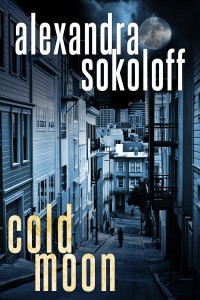 I think scientific studies have made it pretty clear that it’s a combination of both. According to Scientific American, there’s a certain enzyme, monoamine oxidase A, that is linked to increased aggression if it’s below normal level, and certain genes that predispose people to low levels of this enzyme. There are also genes that determine how serotonin is processed in the body, and a certain variant of that gene seems to be a predictor of hostile behavior. There are other studies that point out that people with these genes who are raised in stable environments are less inclined to act out violently.
I think scientific studies have made it pretty clear that it’s a combination of both. According to Scientific American, there’s a certain enzyme, monoamine oxidase A, that is linked to increased aggression if it’s below normal level, and certain genes that predispose people to low levels of this enzyme. There are also genes that determine how serotonin is processed in the body, and a certain variant of that gene seems to be a predictor of hostile behavior. There are other studies that point out that people with these genes who are raised in stable environments are less inclined to act out violently.
Childhood abuse can contribute to violent behavior: many serial killers had abusive childhoods. But many children who were abused don’t grow up to be abusers. It’s also clear to me from the FBI reports on the role of fantasy in the development of rapists and killers that exposure to violent media can be a factor.
Overall, the more interesting question to me is, why are there so more men than women who either are born with the disposition to rape and kill, or who develop the urge to rape and kill?
The proportions of violent men to violent women are so overwhelming that it makes me wonder why we’re not studying that question.
My profound thanks to Alexandra Sokoloff who I hope will return to the blog in the near future to discuss her forthcoming book Cold Moon.
During April 2015 both Huntress Moon and Blood Moon are just £1 on e-book through Amazon.co.uk (links below).
Alexandra Sokoloff is the bestselling, Thriller Award-winning and Bram Stoker and Anthony Award-nominated author of eleven supernatural, paranormal and crime thrillers. The New York Times has called her “a daughter of Mary Shelley” and her books “Some of the most original and freshly unnerving work in the genre.”
As a screenwriter she has sold original suspense and horror scripts and written novel adaptations for numerous Hollywood studios. She is also the workshop leader of the internationally acclaimed Screenwriting Tricks for Authors workshops, based on her Screenwriting Tricks for Authors workbooks and blog.
Her Thriller Award-nominated Huntress Moon series, following a haunted FBI agent on the hunt for a female serial killer, is out now from Thomas & Mercer.
Twitter: @alexsokoloff
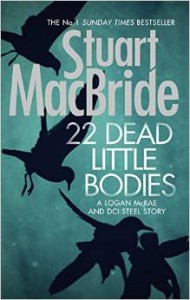 A short novel featuring Aberdeen’s finest investigative duo, Acting DI Logan McRae and DCI Roberta Steel.
A short novel featuring Aberdeen’s finest investigative duo, Acting DI Logan McRae and DCI Roberta Steel.